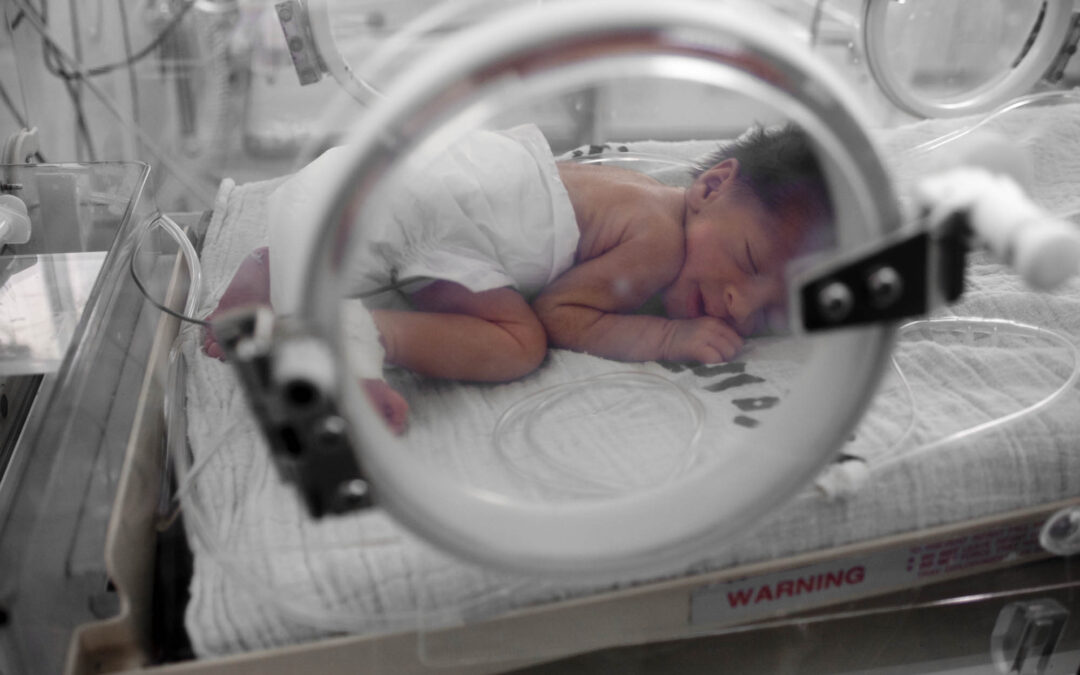Keep our news free from ads and paywalls by making a donation to support our work!

Notes from Poland is run by a small editorial team and is published by an independent, non-profit foundation that is funded through donations from our readers. We cannot do what we do without your support.
Parents of babies born prematurely or who have to be hospitalised for other reasons after birth will be granted extended parental leave under a bill unanimously approved by the Sejm, the more powerful lower house of Poland’s parliament.
Currently, parents of preterm or hospitalised newborns receive the same amount of parental leave as those with babies born healthy and at term. The new legislation would change this, granting them up to 15 weeks of additional leave, depending on how long their child needs to stay in hospital.
Oddajemy czas rodzinom! 💜
Sejm uchwalił ustawę autorstwa @MRPiPS_GOV__PL o uzupełniającym urlopie macierzyńskim dla rodziców wcześniaków i dzieci hospitalizowanych po narodzinach.
Ustawa została przyjęta jednogłośnie, co podkreśla szerokie, ponadpartyjne poparcie dla tych… pic.twitter.com/Vhg5Q0QZSD
— A. Dziemianowicz-Bąk (@AgaBak) November 27, 2024
The draft bill was presented by the ministry for family, labour and social policy as a response to a petition – signed by almost 16,000 people – filed at the ministry in November last year by the Coalition for Preterm Baby Foundation (Fundacja Koalicja dla Wcześniaka).
The World Health Organization estimates that one in ten newborns is premature. In Poland, approximately 20,000 babies a year are born too early or have to be hospitalised after birth. The average hospitalisation time for extremely preterm babies is 92 days.
“Every day, 60 babies are born who are either born prematurely – tiny, weighing less than a one-kilogram bag of sugar – or babies who are sick and have to be hospitalised after birth,” family, labour and social policy minister Agnieszka Dziemianowicz-Bąk said on Wednesday in the Sejm.
After all 428 MPs present voted in favour of the bill, she celebrated the unanimous decision and thanked the parents of premature and hospitalised babies for their involvement in the process.
The legislation now moves to the upper house Senate, which can suggest amendments but not block it. Once approved by parliament, it passes to President Andrzej Duda, who can sign it into law or veto it. In the former case, the law comes into force three months later.
The new legislation introduces up to 15 weeks of additional parental leave for those whose babies are born before 28 weeks of pregnancy or which weigh less than 1,000 grams at birth.
Parents whose children are born between 28 and 36 weeks – or later but require hospitalisation – will benefit from up to eight additional weeks of parental leave.
Every week spent with the newborn in a hospital will translate into one week of additional leave, with incomplete weeks being rounded up. The leave is to be granted to mothers or fathers, legal guardians, as well as foster or adoptive parents.
The number of births in Poland last year was the lowest since WWII.
It was the 11th year in a row in which deaths have exceeded births. The country’s population has declined by almost one million over that period.
Read our full report here: https://t.co/UtzEbTitwd pic.twitter.com/JeIu81fjw8
— Notes from Poland 🇵🇱 (@notesfrompoland) February 1, 2024
Those requesting the additional leave will have to file an application with their employer together with a medical certificate containing information on the week of pregnancy in which the child was born, the child’s birth weight and information on the duration of the child’s stay in hospital.
“It is an attempt to restore, to a certain extent, the lost time of parents with their child,” MP Katarzyna Ueberhan explained when the draft bill was being discussed in the Sejm.
“Very often, parents of premature and sick babies, when their child finally leaves the hospital after many, many weeks, begin a long journey. With rehabilitation, consultations, intensive treatment. Let’s not rob them of this time,” added Dziemianowicz-Bąk.

Notes from Poland is run by a small editorial team and published by an independent, non-profit foundation that is funded through donations from our readers. We cannot do what we do without your support.
Main image credit: Kashfi Halford/Flickr (under CC BY-NC 2.0)

Agata Pyka is a former assistant editor at Notes from Poland. She specialises in Central and Eastern European affairs, cybersecurity, and investigative reporting. She holds a master’s degree in political communication from the University of Amsterdam, and her work has appeared in Euractiv, the Balkan Investigative Reporting Network (BIRN), and The European Correspondent, among others.



















